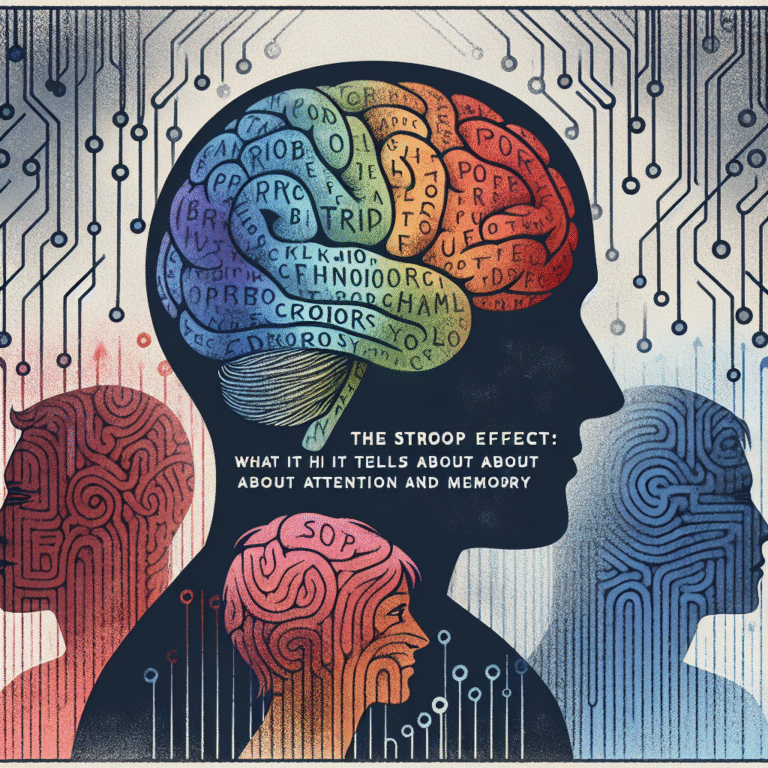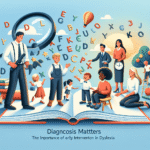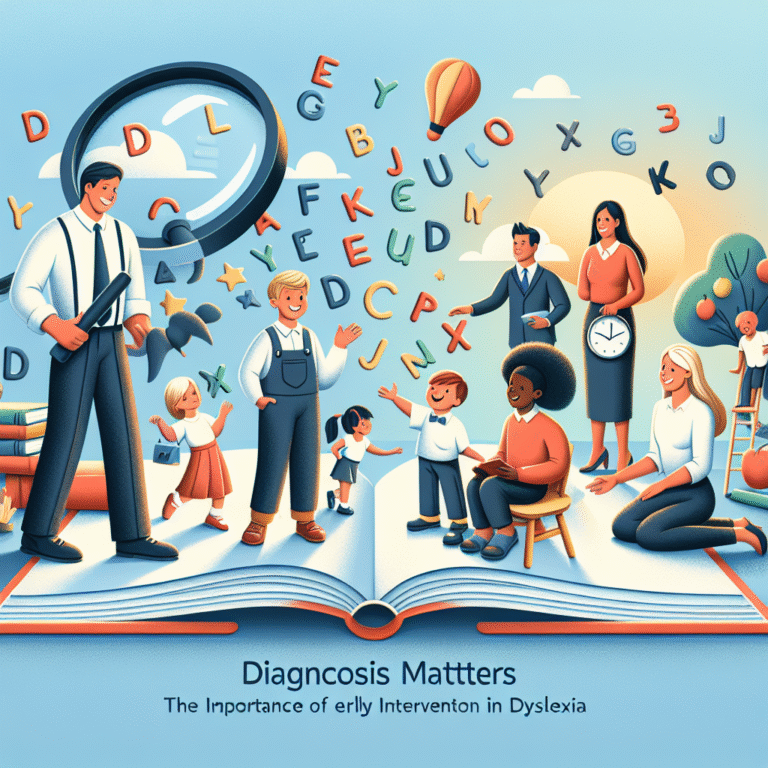
Introduction
Have you ever stopped to consider how age influences the way we perceive speech? This question is not merely academic; it resonates deeply across various fields such as psychology, linguistics, and audiology. As we age, our cognitive processes, sensory abilities, and life experiences shape how we interpret sounds and speech. The impact of age on speech perception is a fascinating area of study that uncovers not only the limitations but also the capabilities of individuals across different age groups. Whether you are a parent concerned about your child’s language development, an educator seeking to cater to diverse student needs, or someone interested in the science of speech, understanding the findings from current studies can enrich your perspective. In this article, we will delve into the vital findings, implications, and applications surrounding The Impact of Age on Speech Perception: What Studies Reveal.
How Age Affects the Auditory System
Normal Aging and Hearing Loss
One of the most straightforward impacts of age on speech perception comes from physiological changes. As individuals grow older, they often experience a decline in the auditory system’s capabilities. A condition known as presbycusis, or age-related hearing loss, typically affects high-frequency sounds, making it challenging to distinguish speech from background noise.
Table 1: Typical Hearing Loss Across Age Groups
| Age Group | Average Hearing Loss (dB) | Commonly Impacted Frequencies |
|---|---|---|
| 20-29 years old | 10-15 | 15,000 Hz and below |
| 30-39 years old | 15-20 | 12,000 Hz and below |
| 40-49 years old | 20-30 | 8,000 Hz and below |
| 50-59 years old | 30-40 | 4,000 Hz and below |
| 60+ years old | 40+ | 2,000 Hz and below |
Neural Plasticity and Aging
Interestingly, while the auditory system may decline, research has demonstrated that the brain exhibits considerable plasticity across the lifespan. Older adults often rely on different neural pathways and compensatory strategies to process speech and sound. This adaptation allows them to maintain communication skills even amid physical limitations. Understanding these changes is essential when exploring The Impact of Age on Speech Perception: What Studies Reveal.
Cognitive Factors Influencing Speech Perception in Older Adults
Working Memory and Attention
Cognitive factors significantly contribute to speech perception. Studies have shown that older adults may struggle with working memory and attention, which can impact their ability to keep up with fast-paced conversations. For instance, a study published in the Journal of Speech, Language, and Hearing Research found that older adults demonstrated a 20% lower accuracy rate in recognizing words compared to younger counterparts in noisy environments.
Life Experience and Contextual Cues
Despite cognitive decline in specific areas, older adults often benefit from a wealth of life experiences. Their extensive knowledge can provide valuable contextual cues, helping them understand dialogue better than younger individuals might in some instances. This highlights an essential aspect of The Impact of Age on Speech Perception: What Studies Reveal: context matters.
Case Study: Cognitive Reserve and Language Comprehension
Consider the case of an extensive longitudinal study on older adults, which explored the relationship between cognitive reserve and language skills. Researchers found that individuals with richer educational backgrounds and lifelong cognitive engagement performed significantly better in speech perception tasks. This study emphasizes that while aging can hinder auditory and cognitive processes, active engagement in intellectual pursuits can bolster speech comprehension capabilities.
The Role of Social Interaction
Changes in Communication Styles
The way we engage in conversations changes as we age. Older adults might prefer slower-paced dialogue with clear articulation. Social settings can also influence speech perception; those who frequently interact with younger individuals may adapt their listening strategies, helping preserve their abilities.
Emotional Context and Empathy
Moreover, emotional intelligence often increases with age, allowing older adults to grasp subtler tones and emotional cues in speech. This leads to a unique interplay between cognitive aging and emotional acuity, enhancing their speech perception in ways that research is still uncovering. For many, understanding the emotional weight behind words can be more critical than the words themselves—a fascinating angle on The Impact of Age on Speech Perception: What Studies Reveal.
Case Study: Intergenerational Communication
One compelling study involved intergenerational families engaging in storytelling sessions. Researchers noted that older adults involved in conversations with children were not only more engaged but also more adept at picking up speech cues. This indicated that social interaction enhances linguistic skills regardless of age.
Technological Advancements and Their Effects
Hearing Aids and Assistive Technology
The advent of hearing aids and assistive listening devices has transformed speech perception for older adults. More sophisticated technology helps amplify sounds, making conversations clearer even in challenging environments. Studies show that users of modern hearing technology report significant improvements in communication and social interactions.
Speech Recognition Software
In tandem, advancements in speech recognition software have made it easier for older adults to engage with digital media. Voice-activated technology can facilitate easier communication, bridging gaps that often come with age. As we explore The Impact of Age on Speech Perception: What Studies Reveal, it’s crucial to appreciate the role technology can play in sustaining and enhancing speech skills.
Table 2: Key Technologies Supporting Speech Perception
| Technology Type | Benefits for Older Adults | Limitations |
|---|---|---|
| Hearing Aids | Amplifies sounds, provides clarity | May require adjustment |
| Cochlear Implants | Directly stimulates auditory nerve | Surgical intervention needed |
| Speech Recognition Soft. | Assists in communication, easier access | May require training |
Strategies for Enhancing Speech Perception Across Ages
Environmental Modifications
Making changes to one’s environment can dramatically enhance speech perception. Reducing background noise, improving lighting, and ensuring clear visual cues can assist individuals of all ages.
Training and Practice
Engaging in specific listening exercises and language games can sharpen speech recognition skills across the lifespan. Recent studies suggest that both cognitive training and social interaction play pivotal roles in maintaining speech perception abilities as one ages.
Case Study: Cognitive Training Interventions
A study published in Cognitive Aging & Development showed that older adults participating in regular cognitive training programs exhibited remarkable improvements in auditory processing and speech perception. This underscores the importance of proactive measures to counteract the decline in speech perception capabilities often seen with age.
Conclusion
The complexities of The Impact of Age on Speech Perception: What Studies Reveal lay bare the intricate relationship between our auditory and cognitive abilities as we age. From physiological changes and cognitive adaptations to the influence of social interactions and technology, the realm of speech perception encompasses a dynamic spectrum that invites curiosity.
As you navigate your personal or professional journeys, consider how age shapes communication—not only in yourself but in those around you. Proactively embracing strategies for enhancing speech perception can enrich interactions at any stage of life.
FAQs
1. How does aging affect speech perception?
Aging can lead to both physiological changes in hearing and cognitive declines in processing speed and memory, impacting how speech is perceived.
2. Are older adults less capable of understanding speech than younger adults?
While they may struggle more in noisy environments, older adults often have extensive life experience that helps them derive meaning through context.
3. What role does technology play in enhancing speech perception for elderly individuals?
Modern hearing aids and speech recognition technologies can significantly improve clarity and accessibility, making communication easier and more effective.
4. Can social interactions mitigate the effects of aging on speech perception?
Yes, engaging in social dialogue can enhance speech perception skills, allowing older adults to adapt and maintain their communication abilities.
5. Are there specific exercises to improve speech perception for all ages?
Cognitive training, auditory processing exercises, and language games can be beneficial for improving speech perception and overall communication skills.
Understanding The Impact of Age on Speech Perception: What Studies Reveal empowers us with knowledge that can improve our interactions and perspectives on aging, communication, and human connection.

















